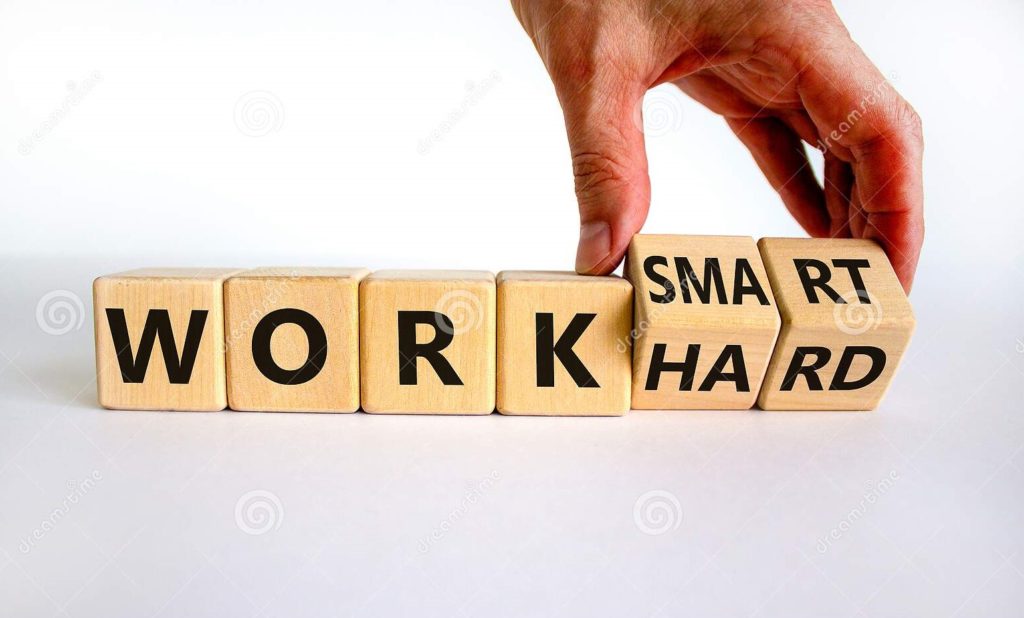Do you feel guilty saying No to requests from others?
You want to come across as a kind, helpful person.
Do you love the attention and respect people shower on you and love to be looked up to?
You do not want to be labeled as ‘’Not a Team Player ‘’ Or ‘’Difficult to Work With.’’
You fear disappointing others and losing relationships.
It is understandable that for New Managers like you it is so difficult to say ‘No’ to requests from the Boss, Co-Workers Employees, and Clients because there is a pressure to have a positive self-image in the organization, there is a fear of offending others, a fear of being labeled as a difficult to work with or not a team player, feeling guilty about having to say no to others.
Even though you are not interested in taking up yet another responsibility or you have no time for new things, or you are already stressed and tired.
If you are experiencing the things mentioned above then you will benefit from reading this blog post.
In this blog post, I will share a few important and interesting things about saying NO :
-
Why it is important to say No to be successful in career and life.
-
Understanding the Yes Trap and how it will sabotage your career and life in the long run.
-
10 Situations where it is Ok to say No.
-
6 tips to keep in mind Before saying No.
-
10 Strategies to Say No Gracefully.
So let’s get started !
WHY IT IS IMPORTANT TO SAY NO TO BE SUCCESSFUL IN CAREER AND LIFE ?
A ‘ YES ‘ will shape your day . But a ‘NO’ will shape your Career.
As Jack Canfield has rightly put it-
‘’There are only two words that will always lead you to success. Those words are ”Yes” and ”No”. Undoubtedly you’ve mastered saying ”Yes” . So start practicing ”No”. Your goal depends on it!
No is a powerful word for success in career and life.
It is important to say No to 4 kinds of people in the workplace,-your Boss, Your colleagues, Your employees, and your clients because –
-
No is essential for your productivity. It helps you create a daily schedule filled with meaning and purpose.
-
It helps you focus on priorities that truly matter.
-
It gives us a definite sense of self. and gives you opportunities to discover yourself.
-
It helps you to be smart with the limited time you have each day.
-
It will get you more respect and show you as a person who values his time and work .
-
Let you have more time for important things like yourself and your family, your health, and stress levels.
-
Feel more freedom and have more time to do what matters.
Saying no helps you establish healthy boundaries and enables others to have clarity about what they can expect from you.
UNDERSTANDING THE YES TRAP AND HOW IT WILL SABOTAGE YOUR CAREER AND LIFE IN THE LONG RUN.
How do you respond to requests from others?
Have you ever noticed that -Whenever you get a request from others, there is a conflict going on inside you between your sense of power and a simultaneous desire to cater to, or foster, a relationship? It is something that happens to all of us.
Whenever we get a request from others to do something we tend to respond in any one out of the three ways:
Accommodate-
We say Yes ,when we want to say No. This gives us a temporary, false sense of peace for the time being .
Later we end up with apprehension and resentment . We disregard our power and cater to the relationship and ironically end up spoiling the relationship in the long run .
Attack-
We respond with an attack mostly with those we love the most, the ones we take for granted. We say ”No” aggressively , stepping strongly into our power , disregarding the relationship with the other person.
Avoid –
We don’t attach importance to our power or the relationship; in other words ,both are at loss. We disregard ourselves and increase our discomfort by leaving the issue unresolved and exhibit disrespect towards the other person by not providing them with a clear answer.
All the 3 ways are passive, aggressive, and indifferent to others respectively. Which are not good for you and others either and certainly not for your career and the organization.
Which is your way of responding? Do you accommodate, attack, or avoid?
.
So let us examine what happens when we say YES instead of saying NO.
For most of us, it is not easy to say No .
You do not want to disappoint others or be seen as a selfish person or a difficult person to get along with.
There are various fears and feelings at play.
As humans, we all want social approval and want to please others. Example –Maybe you want people to like you or be happy with you, think you are reliable, hardworking, helpful, or to make yourself indispensable.
But the trouble is saying Yes has its dangers.
Here are a few things about saying YES that will harm you in the long run:
-
If you say yes -You are giving a message that you are easily available people will like you, but they won’t respect you for saying yes to everything. You’ll just become a convenient person to dump work on.
-
You will be slogging with your own projects and deadlines and find it difficult to deliver on your commitments.
-
You will be stressed and stretched. You will be overwhelmed and have less time to do things and miss out on the most important things.
-
Eventually, you will let someone down.
-
Your quality of work will be poor- with so many responsibilities to handle.
-
Saying yes means taking additional responsibility. By saying “Yes” to something, we’re saying “No” to something else– even if that something is simply relaxing.
-
It gives a message that you put others’ needs before your own.
-
If you consider yourself a people pleaser or find yourself saying “yes” to people, you will only regret it moments later to have put others’ needs before your own.
-
You will make a poor Impact .

Get the FREE ”90 DAY FOCUS PLANNER ” HERE ,and become a MORE IMPACTFUL New Manager .
This habit will harm your career success and the organization’s success in the long run.
So you see how saying Yes is neither healthy for you or your career .
10 SITUATIONS WHERE IT IS OKAY TO SAY NO.
Saying No has a positive impact on others if you are tactful, polite, and firm at the same time. It shows you as a person who values your time and priorities. It shows that you are focused.
Your integrity and good intentions are respected.
You must realize that It is okay to say ‘No ‘and you have every right to say No in these kinds of situations –
-
When you are stressed or overwhelmed.
-
When you are already doing too much
-
When you’re tired or sick.
-
It is busy work or meeting
-
When it’s someone else’s issue.
-
When you feel taken for granted.
-
When it’s something you don’t want to do.
-
When there’s something You’d Much rather do.
-
When it takes away from your values and wishes.
-
When you deserve or need some time for yourself.
Bottom line -Make your stand clear. Let the other person know. Do not feel guilty or selfish when you say No.
6 TIPS TO SAY NO GRACEFULLY.
It’s important to be able to say no so you feel empowered while still maintaining your relationships with others.
So the challenge is how will you say No without sounding impolite or unhelpful?
Here are 6 tips to help you say No without being impolite and feeling guilty:
1.If you get a request from your client, boss or coworker, the first thing to do would be to evaluate the request by seeing how interesting, engaging, or exciting it is.
Next, see your schedule and see whether the priorities can be shuffled, or you can take help from someone else to complete other projects.
So be sure before you say no.
Let them know your situation and take their help in evaluating the quantity of your work and the scope you have.
Check about how important the work is and the amount of time it will take. You must also understand how it will cost the other person to say No.
2. Tell the truth.-ALWAYS find a way to be truthful. There’s nothing worse than being caught in a lie.
3.Be clear and candid about why you want to say no, whether you do not have the desire or do not have the time -come up with the real reason to avoid frustrations. You can say -’’ I will not be able to do justice to both your and my project .’’
4.Take your time to figure out if you want to say No, Not Now or Never . No does not mean No Forever. Do not pressure yourself into giving a response if you are not ready.
5.Offer small help instead of getting involved big time. Say you can help them gain clarity with a brainstorming session, edit some draft, help create a rough draft or get clear on some issues.
6 Be clear, confident, consistent, and concise.- It’s not necessary to offer a lot of information to explain your reasoning (in fact, sometimes it can invite challenges to your “no”). However, you can say something about the kinds of things you are willing to do, or the time frame in which you might be in a better position to say yes.
Doing so lets others know you are acknowledging the request, and demonstrates respect for the person who asked. Communicating to others that they’ve been heard can go a long way toward strengthening a relationship, even when you say no.
THINGS TO KEEP IN MIND TO SAY NO POSITIVELY :
-
Be polite and firm at the same time. Take care of your tone, pitch, and facial expressions. Be kind and compassionate, but do not sound as if you can change your mind if pushed further. The firmness is important. Say no in a way that makes people respect you.
-
Be prepared for a negative response from your colleagues, they may be frustrated with not getting help for some time, but they will soon start to figure out ways to move on and forget about you not helping them
-
Stop feeling guilty about breaking the relationship, or disappointing others, or being labeled as a not helpful or difficult person
-
Practice saying No loudly until you become perfect at saying No.
-
Change gradually and not overnight.
So you have understood how saying No is helpful to you in many ways, but keep your eyes and mind open and evaluate each situation, see how others around you will be impacted. Check your priorities and bandwidth.
10 HELPFUL STRATEGIES TO SAY NO GRACEFULLY.
1.( SIMPLE RESPONSE ) A simple “No but thanks for asking /thinking of me “
2.( SOMETHING ELSE ) .Show that you have something else which is more important . A simple “ I’m already doing______? Have a dentist appointment .”
3.( BUY SOME TIME ).
When unsure how You feel or need time to prepare a response. Some people question what to do when they don’t have an immediate answer to an inquiry. It’s okay to take a little time to think about your response.
To keep yourself from avoiding altogether, provide a deadline by which you need to decide what your answer will be.
Tell the other person something like, “I need to give your request some thought. I will let you know by noon Friday.” Or ‘I’m away from my desk right now, can I let you know once I have my dairy in front of me.”
This deadline keeps you accountable and ensures that you honor both the relationship and yourself by providing a concrete reply in a reasonable time frame.
.
4.( DEFER ) .Use this when it is other people’s problems or issues.
” I’m just in the middle of something /a tight deadline. Can I get back to you tomorrow /next week ?”
”I’m crazy busy this week /months. Can’t it wait until next week/months “
5.( TRANSFER )– Good for maintaining relationships and still being helpful.
Suggest who else could do it, “I know John loves that kind of a thing .”
6.( RETURN THE NO).Good to use when you find someone taking advantage of your helpful nature ”I don’t feel comfortable/have enough experience to help you with that, but John might be able to ”
7. ”I can’t do it right now ____ but I could show you how for yourself”
8.( REQUEST PRIORITY )____ Good for dealing with your boss/when you’re at work. Ask for the priority, ‘Which one do you think I need to focus on first ?” ”OR ” If I do this, what would you like me to stop working on?
9 .(PRIORITISING YOURSELF)___ Stay in control of your life and feel good about you!
“I’d love to help , but I’m focusing on _______ (this report) right now “ OR ‘” I don’t have time for anything except _______________( this project /my family ) at the moment.”
10 ( USE ANCHOR PHRASE) Another helpful strategy is to use an “anchor phrase.” For example “I have a policy …” or “I’d rather say no to you now rather than disappoint you later” or “I only volunteer in connection with a particular cause.” Once you have your anchor phrase, you can practice it.
CONCLUSION –
By now you must have understood the importance of saying No and how saying Yes to others can impact your as well as other success in the long run.
Be clear with your priorities, articulate your decision clearly, stop feeling fearful or guilty about saying no. Making time to offer small help instead of indulging big time, taking time to respond, and being firm and polite while saying No are a few simple things you must keep in mind for success in the long run.
Be proactive and prepared, to be able to say no more confidently so you can say yes to things that are truly important to you.
Being able to say no will help you to be more honest and authentic with others. In time You may be less likely to feel taken advantage of, and people will learn to come to you for the things to which you are more inclined to say yes. People will learn to respect your yes rather than take it for granted.
You will find that your resources are allocated more appropriately, and your connection to, and communication with, others will be healthier as well.
How has the article helped you?
What are your difficulties with saying No ?
Please share your response in the comments box below .
If you’re curious about learning more about how to say NO , I support managers at all levels with coaching specifically on this powerful topic. If this sounds like you and you’d like to explore how coaching can help, please schedule a FREE DISCOVERY SESSION NOW
Babita Sharma
Leadership Coach
www.leadwithpassion.co.in
P.S-Please share this article with someone today .






